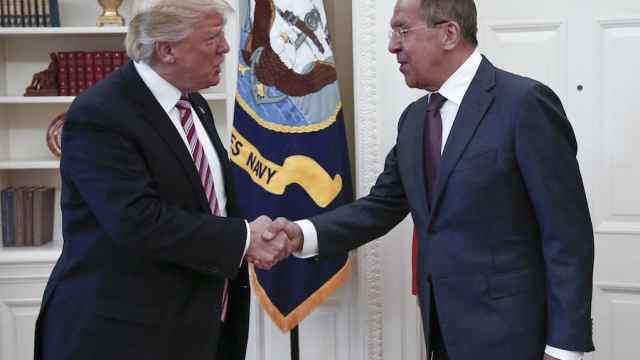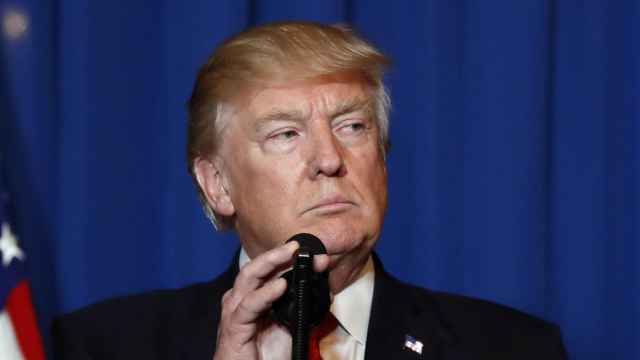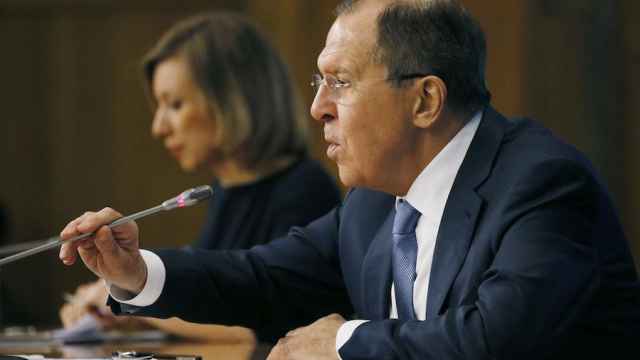In October, 2014, in a speech at the Valdai forum in Sochi, Vladimir Putin half-jokingly reminded his audience about Russia’s nuclear strength. “Yes, Soviet Union was named Upper Volta with nukes”, he said. “Maybe, but nukes — there were plenty.”
Two years after, the Kremlin is sending a similar message, but in a less joking form. On Monday, Russian President Vladimir Putin introduced a bill to the State Duma that proposed suspending a plutonium disposal agreement with the US.
The document made clear the reasons for suspension had little to do with plutonium disposal. The Unites States’ “unfriendly actions” towards Russia had “posed a strategic threat to stability,” it claimed. In order to renew the deal, Washington must cut military presence in NATO countries, lift sanctions, abolish the so-called Magnitsky law of asset freezes and visa bans in relation to Russian officials, and pay compensation for losses Russia has suffered under the sanctions.
The tone and form of the ultimatum — why would the Kremlin attack the US in legislation? — suggested it didn’t have to be read literally. Instead, the plutonium legislation was a “vehicle” used to “deliver a message,” suggested political analyst Vladimir Frolov.
The Kremlin had “boiled over,” a source close to Russia’s leading foreign policy makers told The Moscow Times. According to the source, the new legislation was triggered by statements of U.S. Department of State spokesman John Kirby.
Continuing the war in Syria could cost Russia, Kirby had suggested last Wednesday — in the form of “terrorist attacks” on its soil, “lost aircraft”, and “troops in body bags.”
The Russian response was “not hard to unpack,” said the source: “It just reads ‘Screw you.’”
Russian lawmakers told the Moscow Times that the U.S. had provoked this round of confrontation. “They told us about the possibility of new sanctions; they told us that terrorists may target Russian cities and that Russia may start losing planes,” said Alexei Pushkov, former head of the State Duma international affairs committee and now a United Russia senator. “It would’ve been strange to expect Moscow to show patience in response to such aggressive attacks.”
“We will keep helping Syria preserve its sovereignty,” Leonid Kalashnikov, the State Duma deputy and former member of the international affairs committee told The Moscow Times. “Of course it would have been better if we did it together with a country like U.S., but it is what it is.”
For many, however, the message is clear. “The Kremlin is done with the Obama administration,” says Frolov. “The conversation is over.”
Proxy War
More broadly, the legislation on plutonium exchange should be understood as Russia’s answer to the failed ceasefire agreement in Syria. A month ago, United States Secretary of State John Kerry and Russian Foreign Minister Sergei Lavrov signed an agreement that was supposed to lay the foundations for a lasting peace in Syria. Instead, the deal evaporated within two weeks. Russian planes were accused of bombing a humanitarian convoy headed to the besieged city of Aleppo.
When Russian and Assad forces continued to bomb Aleppo, it was only a matter of time before the U.S. would halt cooperation with Russia. Indeed, the U.S. suspended negotiations right after.
“Everybody’s patience with Russia has run out,” said White House press secretary Josh Earnest.
Now, Moscow seems ready for a new escalation. According to The Moscow Times’ policy maker source, a “proxy war” is about to begin in Syria, pitting Russian backed surrogates against U.S. backed ones. The Russian Defense Ministry has confirmed it has deployed S-300 air defense systems in Syria. At the moment, no Syrian rebel group has aircraft or ballistic missiles that the S-300 air-defense system is designed to intercept.
Assymetrical Response
By packaging up a demand to remove sanctions inside the hawkish legislation, however, the Kremlin did concede one thing: the measures were actually hurting. Never before had Russia admitted it had so much as suffered from them. Sanctions only did good things for Russia, Putin had claimed: they “boosted import substitution,” moved the economy to new “hi-tech standards,” and “united the nation.”
For all the bravura rhetoric, the Kremlin has in fact been trying to achieve a partial lifting of sanctions for many months. There has been efforts made to reduce the effects of so-called “sectoral sanctions,” made on strategic parts of the Russian economy, which are tied to Minsk peace agreements.
It might even be possible to read the new legislation as an invitation to negotiate. “Now we have a whole list of Russia’s demands in the form of a law, which is official and can’t be ignored”, said Frolov. “From this perspective, it’s a concession, a ‘let’s talk about this,’ though it’s obviously aimed at next American president.”
What Moscow has not anticipated in teaching the Obama administration a new lesson, however, is that the answer could be quite asymmetrical.
“Russia is on the verge of new sanctions in relation to humanitarian catastrophe unfolding in Syria”, Frolov said.
A Message from The Moscow Times:
Dear readers,
We are facing unprecedented challenges. Russia's Prosecutor General's Office has designated The Moscow Times as an "undesirable" organization, criminalizing our work and putting our staff at risk of prosecution. This follows our earlier unjust labeling as a "foreign agent."
These actions are direct attempts to silence independent journalism in Russia. The authorities claim our work "discredits the decisions of the Russian leadership." We see things differently: we strive to provide accurate, unbiased reporting on Russia.
We, the journalists of The Moscow Times, refuse to be silenced. But to continue our work, we need your help.
Your support, no matter how small, makes a world of difference. If you can, please support us monthly starting from just $2. It's quick to set up, and every contribution makes a significant impact.
By supporting The Moscow Times, you're defending open, independent journalism in the face of repression. Thank you for standing with us.
Remind me later.






